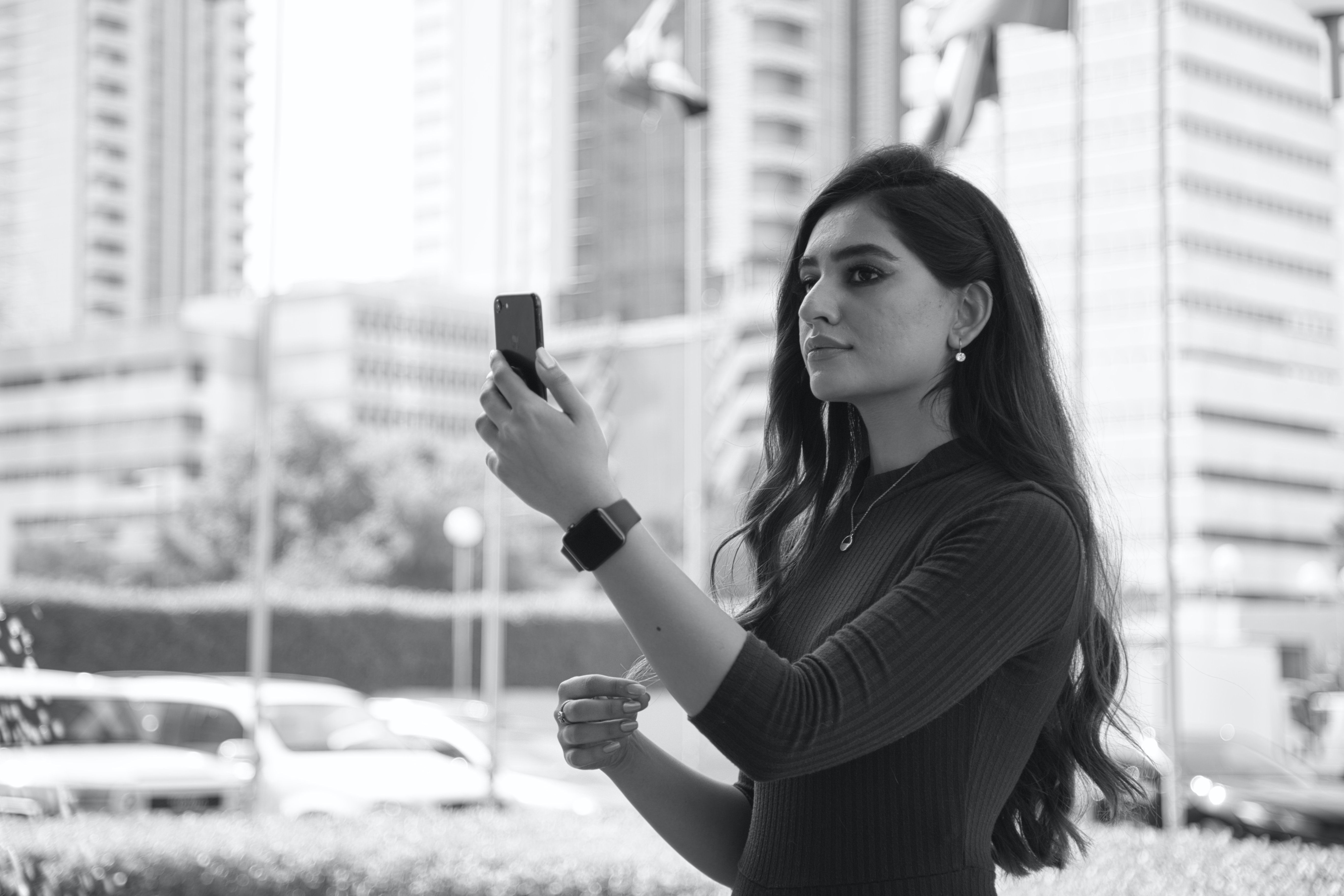Your Black and White "Challenge Accepted" Selfie Is Pointless
The "Challenge Accepted" Instagram trend is well-intended, but these photos miss the point.
If you've been on Instagram during the past 72 hours, there is a good chance that you've seen a woman post a photo of herself filtered in black and white, with a caption that included the word "Challenge Accepted," often paired with the hashtag #womenempowerment.
In the history of Instagram, there have been innumerable challenges; 2009 vs. 2019, "Until Tomorrow," whatever that "draw a carrot" challenge was on everyone's stories at the beginning of quarantine. This latest "challenge" is, purportedly, one of female empowerment, as these desaturated selfies flooded Instagram like the latest iteration of the infamous Solid Black Squares. Each woman who posts a photo tags fellow women to participate, further pushing the endless stream.
Even celebrities like Eva Longoria, Khloe Kardashian, and Kerry Washington have hopped on the bandwagon, posting flattering, colorless photos of themselves, often giving thanks to the "queens" who have lifted them up throughout their careers. But while the act, like any Instagram challenge, seems entirely innocuous on the surface, the trend potentially comes with a rather harrowing backstory.
Though there have been a few similar rounds of black-and-white "Challenge Accepted" posts throughout the past few years, it's a little trickier to find the root of the women empowerment version. Many believe that it was due to a recent video of Representative Alexandria Ocasio-Cortez, who spoke out last week about Representative Ted Yoho's sexist remarks against her on the Congress floor.
"That was the spark that led to the resurgence of the hashtag challenge," Cristine Abram, a public relations and influencer marketing manager for the social media marketing firm Later, told the New York Times. "It's all to do with female empowerment. There was this hashtag that already existed to raise awareness around other large issues. Tapping into that allowed participants to gain traction a lot faster because the algorithm was already familiar with the hashtag."
But another possible cause of the challenge is darker: Some believe the trend is connected to the recent violent death of Pınar Gültekin, a 27-year-old Turkish woman who was reportedly strangled and beaten by her ex-boyfriend. The murder has sparked recent protests in Turkey about the country's alarming rates of reported femicide and violence again women.
According to a 2009 study, 42 percent of Turkish women aged between 15–60 are survivors of physical or sexual violence by their male partners—those numbers are expected to spike in 2020, considering how much time people have been forced to spend in their (sometimes dangerous) homes. According to a comprehensive post by writer @minaonthemoon on Instagram, 474 Turkish women were murdered in instances of gender-based violence in 2019 alone.
According to another Instagram post by political activist @agirlhasnopresident, women in Turkey began sharing photos of themselves in black-and-white to amplify female voices, replicating similar black-and-white photos of murdered Turkish women splayed across their televisions and newspapers. Instagram has reportedly denied that these new "Challenge Accepted" posts are related to gender-based violence in Turkey, but—much like the black squares—the influx of these photos by non-Turkish women are taking up space that's not intended for them, further edging out these crucial stories of violence from a country being silenced by its government.
Like just about any viral Instagram challenge veiled in the name of "activism" (especially that godforsaken "Imagine" compilation helmed by Gal Gadot back in March), this women empowerment challenge is an empty excuse for advocacy. Instead of jumping on an opportunity to post a thirst trap for dudes who conveniently skip over your Instagram story, try lifting marginalized voices instead.
Instead of posting about yourself, use your social media to spotlight your favorite Black feminist. Spread awareness about Brayla Stone, Merci Mack, Shaki Peters, Draya McCary, Tatiana Hall, Bree Black, and the countless other Black transgender women who have been murdered recently. Encourage your followers to donate to nonprofit organizations for these marginalized voices, like the Marsha P. Johnson Institute.
Of course, you could also talk about the deaths of women in Turkey—because it's devastating, and news outlets in the United States likely won't cover it. But, no matter how much you love your "sisters," a black-and-white photo isn't going to do anything other than remind people what your face looks like.
